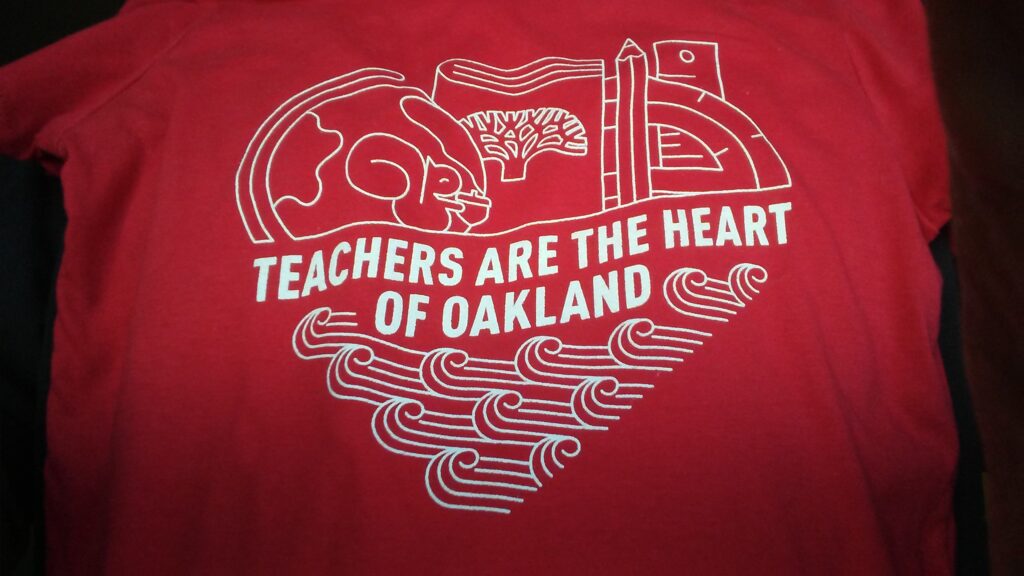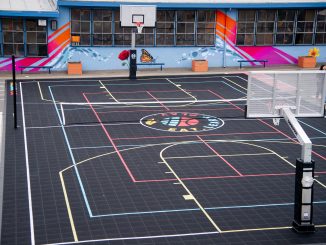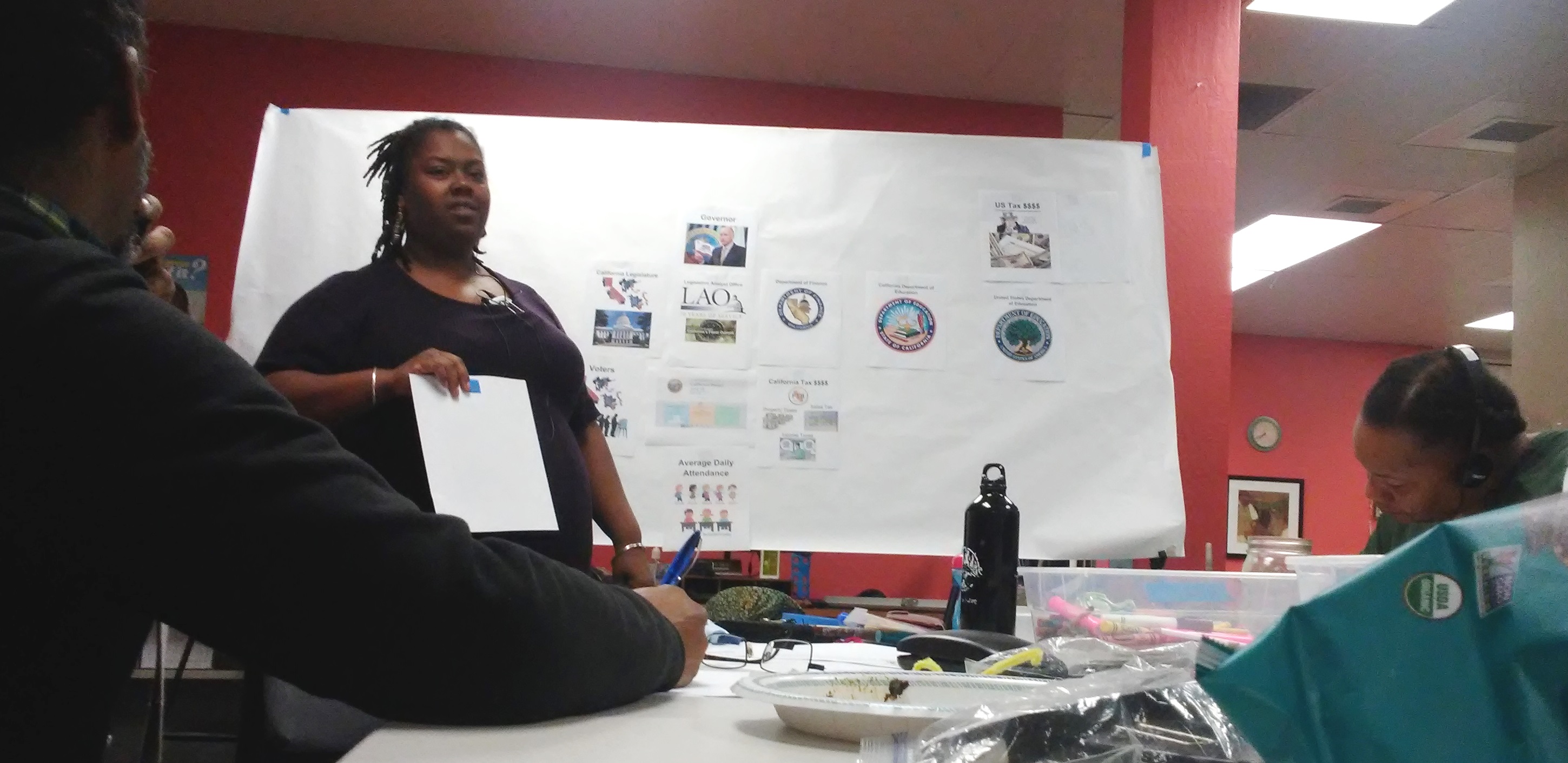
Last Friday, in response to the COVID-19 Coronavirus outbreak, the Oakland Unified School District announced that all schools and child development centers would be closing for three weeks at the end of the day. On Monday afternoon, Alameda County ordered residents to shelter-in-place. Governor Gavin Newsom has ensured state funding for public education, and signed an Executive Order cancelling standardized testing for this year. Newsom announced a statewide lockdown of all non-essential activities on Thursday evening.
For many OUSD teachers, just 12 and a half months after the Oakland community rallied around public school educators during their historic week-long strike, their stamina is being put to the test again. Oakland educators are working hard to validate public support by taking the lead on supporting families during the global health pandemic caused by the COVID-19 Coronavirus.
Oakland Education Association (OEA) President Keith Brown, who has spent the past seven days in virtual meetings trying to figure out how educators can support their students during the now indefinite shutdown of public school sites in accordance with what has become a statewide lockdown, says that he is extremely proud of how educators are holding steady for students and their families during this unprecedented emergency.
“Over the weekend, teachers compiled resources for families, and recorded videos in multiple languages to inform families of the situation,” Brown said via phone.
What has become more clear since the school closures is that schools are more than just places where students learn: they provide food, shelter, sometimes healthcare, and much more.
“Our teachers are focused on the wellness of students and families,” Brown said. “Union members called families and volunteered to make sure students had food.”
In an email announcing the shutdown, Superintendent Kyla Johnson-Trammell said that “School sites have been and will continue to be crafting continuity of education plans.”
Addressing the most immediate concern that over 70 percent of OUSD students rely on the district for two meals a day, Johnson-Trammell also announced that the Nutrition Services Department would provide meals available to all students at 12 school sites throughout Oakland. About 25,000 meals were distributed on Monday, and about 50,000 were distributed on Thursday, according to OUSD’s tweet.
“This pandemic shows how schools are the most vital hub in the community. Our students and families must have needed social services,” Brown said. “The work of our teachers is a call to action to invest in the common good.”
In anticipation of what seemed inevitable to her, Bret Harte Middle School Special Education teacher Sayuri Sakamoto had already begun preparing to support her students through “distance learning” during the shutdown.
“I know that a lot of my families don’t have computers, so I’m trying to figure out what that looks like.”
Sakamoto, who got married two weeks ago but has yet to go on her honeymoon, gave out work packets to her students at the end of the day on Friday, and has spent every day since trying to figure out how she is going to best support her students, all of whom benefit from a rigid daily routine, and some of whom were already facing the stress-inducing transition to high school.
“It really throws a wrench into everything,” she says about the closing of the school sites.
On Monday morning, Sakamoto went into her school, which was open because it is one of the 12 sites offering free meals to students during the shutdown. She prepared her room to be deep cleaned, and gathered paperwork needed to prepare Individualized Education Programs (IEPs) for her students.

She says that her primary concern has been the health and well being of the families of her students, and OEA has provided resources to assist educators with conducting wellness check-ins on their students and their families.
Sakamoto has reached out to each family in her class to find out what is the best way to communicate with them and how she can best support each student academically.
She also wanted to know which families are aware of the free meals being offered by the district, and which families even have a computer that will allow them to participate in any online assignments that she creates for them.
On Tuesday, she checked in on two former students who live with their grandmother. They don’t have a working computer, and their neighborhood is too dangerous to play in, Sakamoto said.
That evening, Sakamoto and her new husband also picked up food donated from Arizmendi Bakery, which they were able to deliver to five different families.
She says that interacting with other educators online has been a great source of professional and emotional support at this challenging time.
The district has also promised to ensure that special needs students have access to social workers and nurses.
Megan Bumpus, a fifth grade teacher at Reach Academy in East Oakland and a mother of two pre-school aged children, says that when students learned last Friday that their school would be closed for three weeks, “craziness” ensued for the rest of the day. While the students got an early start on their weekend-turned-indefinite-homeschooling, the staff was quick to assemble hardcopy packets of worksheets and test prep materials.
They are well aware of the digital divide at their school in the East Oakland flatlands, so Bumpus also picked some books for her students to take home with them during the shutdown.
Schools in other parts of town may not be having problems engaging with students online, and some have even given out electronic devices to their students, but many public schools in the flatlands will have challenges during the shutdown. Nationwide, 40 percent of low income black and brown families lack decent web access according to The Progressive.
“It looks really different for everyone,” Bumpus said.
During a special online School Board meeting this week, Superintendent Johnson-Trammell confirmed that learning is “optional,” and teachers are not allowed to grade or punish students for not participating.
Bumpus tried to spend the weekend relaxing with her own children, but that included devoting time to coordinating the co-op pre-school that they are a part of.
On Monday morning, when some staff at Reach Academy showed up to school to alert any families that didn’t know that the campus was closed, only five of Bumpus’ 31 students had logged on to their online platform.
However, with her two pre-schoolers acting like pre-schoolers all around her, she texted the family of each student in her class to assess their tech capacity and to let them know how they could be plugged in if they’re able to go online. Her efforts were rewarded later in the evening, when more students had logged on.
Access to a device to get on to the internet remains an issue for many Oakland families, especially now that public libraries are closed as well. Bumpus says that she would have been willing to defy the region-wide shelter-in-place order to go pick up a free device for any family that needed one, but devices aren’t readily available.
Educators are trying to address this and many other issues. OEA has put out a list of resources for technology, academics, health, safety, finances, food, wellness, mental health, and even ways to volunteer to help others.
Like Sakamoto, Bumpus feels supported by her fellow teachers online, and adds that she is also seeing teachers advocating for funding for school site support staff.
Meanwhile, with the help and support of each other, Oakland educators will continue to pioneer the art of educating children from a distance in the midst of a society-altering global pandemic.
The Governor’s Executive Order cancelling standardized testing for this year was welcome news to Bumpus, who just wants her fifth graders to enjoy their last few months of elementary school.
“The only thing I want to do with my kids is love and science,” she says.
Tony Daquipa is a dad, essential bureaucrat, photographer, urban cyclist, union thug, wannabe stonemason, karaoke diva, grumpy old man, storyteller, and preserver of history.




Be the first to comment